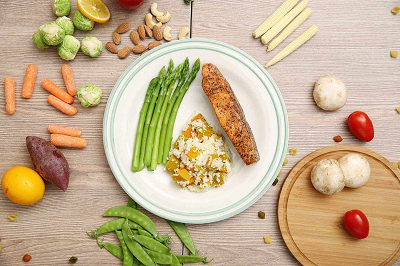Foods to Avoid if You Have Epididymitis: How Diet Can Affect Symptoms
Epididymitis is an inflammation of the epididymis, often caused by urinary tract infections (UTIs) spreading through the vas deferens. Other risk factors include frequent catheter use, transurethral instrumentation, and certain post-surgical conditions like after a prostatectomy. Incomplete treatment of acute epididymitis can lead to chronic epididymitis.

The primary bacteria responsible for epididymitis include Escherichia coli, Proteus, Staphylococcus, Enterococcus, and Pseudomonas aeruginosa. In some cases, Chlamydia trachomatis can also be the cause. These pathogens often travel through the vas deferens retrogradely. In rare cases, bacteria may invade the epididymis via the bloodstream or lymphatic system.
Foods That May Worsen Epididymitis Symptoms
While diet alone won't cure epididymitis, certain foods can worsen symptoms and prolong recovery. It's essential for patients with epididymitis to know which foods to avoid:
1. Spicy and stimulating foods
Patients should avoid eating foods such as ginger, garlic, pepper, chili peppers, onions, etc. These foods can exacerbate the body's inflammatory response, promote the release of inflammatory factors, and cause patients to experience increased pain and enlarged epididymal nodules, thereby exacerbating the patient's condition.
2. High-fat foods
Greasy and fried foods, rich in fats, can strain the digestive system and negatively impact the body's ability to heal. Avoid these foods to reduce discomfort and promote a quicker recovery.
3. Wine
Alcohol, especially wine, can promote dampness and heat in the body according to traditional Chinese medicine. This can impede recovery by worsening the body's internal environment and slowing down the healing process of epididymitis.
Recommended Diet for Epididymitis Patients
To support recovery, consider including the following foods in your diet:
1. Fruits and Vegetables
Fresh produce like celery, broccoli, black fungus, tomatoes, apples, grapes, and bananas provide vitamins, antioxidants, and fiber that help reduce inflammation and support immune function.
2. High-Protein Foods
Foods like lean meats, eggs, milk, and soy products (like tofu and soy milk) offer essential proteins that help repair tissues and promote healing.
3. Minerals
Certain minerals, particularly iron, can alleviate symptoms like fatigue, weakness, and pale complexion that may result from sexual dysfunction or orchitis, conditions related to epididymitis.
Treatment Options for Epididymitis
While a proper diet may help alleviate symptoms, it's crucial to seek medical treatment for epididymitis. Some common treatment options include:
1. General Treatment
Resting in bed and elevating the scrotum can reduce swelling. Ice compresses are recommended during the early stages, while hot compresses or sitz baths can be helpful later. If pain is severe, oral pain relievers or spermatic cord blocks may be necessary.
2. Antibiotic Therapy
Antibiotics targeting the specific bacteria causing the infection should be administered. Patients typically start with intravenous antibiotics for one to two weeks, followed by oral medications for another two to four weeks to prevent the condition from becoming chronic.
3. Surgical Treatment
If antibiotics fail or testicular ischemia is suspected, surgery may be necessary. Procedures like epididymostomy, abscess drainage, or in extreme cases, testicle removal can be performed depending on the severity of the condition.
4. Herbal Medicine
Traditional Chinese medicine like the Diuretic and Anti-inflammatory Pill can offer an alternative treatment by promoting blood circulation, reducing stasis, and combating infection naturally, with fewer side effects than long-term antibiotic use.
How to Prevent Epididymitis
Prevention plays a key role in avoiding future episodes of epididymitis. Here are some ways men can reduce their risk:
1. Maintain Good Hygiene: Regular cleaning of the perineum is essential to prevent infections. Keep the area clean and dry to minimize the risk of bacterial growth.
2. Improve Diet: Avoid spicy foods, limit alcohol consumption, and reduce the intake of high-fat and cholesterol-rich foods to support the health of your urinary and reproductive systems.
3. Manage Stress and Avoid Overwork: A balanced lifestyle, proper rest, and avoiding emotional stress can support immune health and help prevent infections. Prevent colds, avoid holding urine for extended periods, and maintain regular bowel movements.
4. Exercise Regularly: Engaging in moderate physical activities such as Qigong or Tai Chi can improve overall health, boost immunity, and protect against bacterial infections.
5. Avoid Tight Clothing: Wearing tight-fitting clothes can increase the temperature in the perineum, negatively affecting sperm production and creating a favorable environment for infections.
Conclusion
Though diet cannot cure epididymitis, making the right dietary choices can help alleviate symptoms and prevent worsening. Patients should focus on a balanced diet while adhering to medical treatments. By taking preventive measures such as maintaining hygiene, exercising, and seeking timely medical care, men can protect their reproductive and urinary health and reduce the risk of future complications.
You may also be interested in:
Will Drink Too Much Coffee Cause Epididymitis?
Can Patients Smoke During the Treatment of Epididymitis
Swim Your Way to a Pain-Free Life: Why Epididymitis Suffers Should Try Swimming Today



